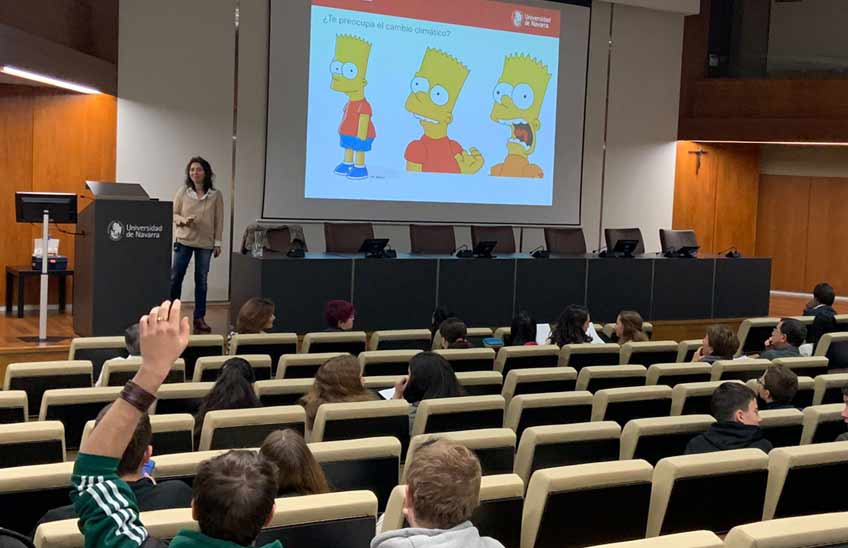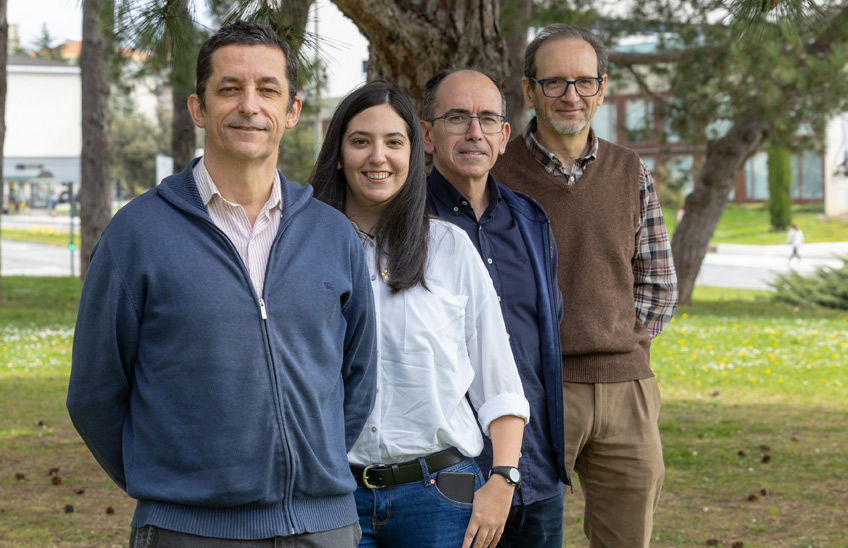"Saving energy is the cheapest, safest and cleanest way to reduce our dependence on fossil fuels."

22 | 11 | 2022
"Saving energy is the cheapest, safest and cleanest way to reduce our dependence on fossil fuels. This was emphasized by Irantzu Alegría, Senior Researcher at CENER(National Renewable Energy Center), in a session at the University of Navarra. The lecture "Do you accept the challenge? Reduce your impact in an efficient way" was part of the activities of the Science Weeks organized by the Science Museum of the University of Navarra, with the support of partnership of the Spanish Foundation for Science and Technology (FECYT) / Ministry of Science and Innovation.
"Climate change is mainly caused by the use/abuse of fossil fuels, such as coal, oil and gas," he said. As he explained, "energy is one of the fundamental pillars of human progress. We need access to it in our daily lives, but 78-80% of this energy comes from fossil fuels."
Thus, the energy sector is manager of approximately ¾ of CO2 emissions. In this regard, he referred to the main energy consuming and CO2 emitting countries, with China (31%) being the most relevant, followed by the USA (13.5%) and the European Union (7.5%).
goal 2030: emissions reduction and energy efficiency
In his opinion, it is necessary to talk about energy efficiency, "which drives the development, by increasing the amount of 'service' obtained from each unit of energy". In his opinion, "it has come to be recognized as an important energy resource ; it is considered the first fuel, because it is the one that is not consumed".
Irantzu Alegria recalled that the European Union has set itself a goal target of reducing greenhouse gas emissions by at least 55% by 2030, as well as an energy efficiency goal of 32.5%.
He also stressed that the EU's energy efficiency measures focus on the sectors with the greatest savings potential: industry, transport and the domestic sector. In addition, the EU has developed a series of tools, including eco-design and the circular Economics , which promote reducing, reusing and recycling as much as possible.
In Europe, we generate 2.5 billion tons/year of waste; about 5 tons per person. "Minimizing waste reduces pressure on the environment, improves security of supply of raw materials, increases competitiveness, innovation, growth and employment. Increase product durability, reusability, update and repair," he said.
One London-Rome trip, 234 kg of CO2; 200 hours of tik tok, 31.2 kg.
Finally, Irantzu Alegria focused on the environmental impact of each person and how to reduce their consumption. She pointed out that passenger transport is the manager of 21% of emissions and that a London-Rome round trip (234 kg CO2), for example, generates more CO2 than the citizens of some countries produce in a year.
He also referred to other measures to reduce our carbon footprint, such as reducing online shopping and door-to-door service, the consumption of meat or water, the use of electrical appliances or, for example, the use of social networks. In this regard, he highlighted that one hour a day of Tik Tok for 200 days a year is 31.2 kg of CO2, just one seventh of what the London-Rome trip emits. "The energy that is not used is the most important," he stressed.


